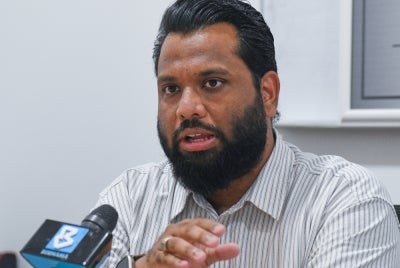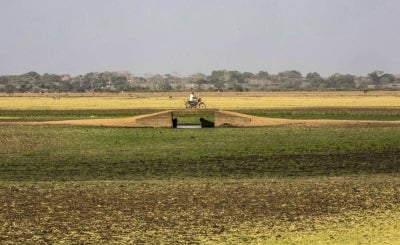Appointing nominees good way to ensure assets of deceased go to rightful heirs
Appointing nominees as administrators of one’s assets such as savings or investments is a legitimate practice accepted by both Muslims and non-Muslims in this country.

KUALA LUMPUR - Appointing nominees as administrators of one’s assets such as savings or investments is a legitimate practice accepted by both Muslims and non-Muslims in this country.
According to an article titled ‘The Practice of Asset Nomination for Muslims in Malaysia: A Brief Overview According to Syariah’ in a 2002 journal published by the Faculty of Islamic Studies, Universiti Kebangsaan Malaysia, the appointed nominees can benefit from the assets or own them after the death of the asset owner.
The article also stated that the appointment of nominees is the standard procedure followed by the Employees Provident Fund (EPF), Lembaga Tabung Haji (TH), Bank Simpanan Nasional (BSN) and other institutions including life insurance providers.
In the event of the depositor or asset owner’s death, the money will be channelled to the nominee, who is usually an eligible heir. In such cases, the nominee holds absolute rights to the assets.
Even then, there is confusion regarding this matter from the Islamic perspective due to claims that nominee property violates the principles of faraid (Islamic inheritance law) and wasiat (will).
AMONG THE BEST SOLUTIONS
Commenting on this, Universiti Islam Selangor vice-chancellor Prof Datuk Dr Mohd Farid Ravi Abdullah said appointing nominees is the best move one can take to protect their savings or investments and ensure these assets are easily accessed by their heirs upon their death.
"Asset owners are advised to designate a nominee for their savings, which can serve as a financial safety net for their dependents,” he told Bernama recently.
According to Farid, the nomination is essentially the deceased’s will, allowing the nominee to withdraw the money or assets promptly for the benefit of the heirs without needing an order from the estate administration authority.
"The trustee (nominee) can be an individual, an agency or any recognised authority entrusted by the asset owner to be the executor (of their will). The person who will manage (the assets) is the 'caretaker’.
"For Muslims, the executor must be of sound mind and have reached the age of maturity as prescribed by Syariah law,” he said.
NOMINEE SELECTION
Farid said the selection of a nominee or executor by asset owners needs careful consideration as the former will be responsible for managing their assets after their death.
"Asset owners must carefully evaluate all aspects when appointing an executor or trustee, as outlined by Syariah law, to ensure the objectives of the nominator are achieved,” he said.
He also cited TH, cooperative bodies and EPF as among the institutions that adopt the nominee concept as a financial planning measure to determine the individuals who will inherit the savings or deposits after the asset owner’s death.
"The same goes for Simpan SSPN (National Education Savings Scheme under the National Higher Education Fund Corporation or PTPTN), which requires Muslim account holders to name a nominee to allow PTPTN to transfer any money from a deceased’s account to the nominee for administration purposes,” he said.
He also said each Islamic financial institution has specific conditions for asset nomination but ultimately, in accordance with existing laws, the nominee is only a trustee of the assets and must hand them over to the rightful heirs.
Farid feels Muslims also need to be more aware and conscious of their responsibilities regarding issues such as wills, savings and inheritance, adding this can prevent confusion and make them more knowledgeable about asset management.
"Local newspapers have reported that (in Malaysia) there is about RM90 billion in unclaimed assets and RM66 billion in unclaimed inheritance belonging to Muslims. This clearly shows Muslim-owned assets are not being managed prudently because they (Muslims) don’t take the issue of inheritance seriously,” he said.
MOVABLE, IMMOVABLE ASSETS
Meanwhile, Universiti Sains Islam Malaysia (USIM) senior lecturer Dr Norsuhaida Che Musa said in general, savings, including those that fall into the category of inheritance, must be divided according to faraid or Islamic inheritance law after the owner's death.
However, this is subject to several conditions, namely the heirs must settle the deceased's debts and hibah (if any) - hibah refers to wealth or assets transferred to another individual or entity by the owner during their lifetime - as well as wills and jointly acquired property before finally distributing the savings according to faraid.
"In the context of assets, there are two categories, that is, movable and immovable. Savings fall into the category of movable assets. Examples of savings are the money in bank accounts and fixed deposits, and in EPF and Tabung Haji accounts.
"Savings are part of the inheritance and must be divided according to faraid after the owner's death. This process involves settling (owner’s) debts, executing a valid will and obtaining a faraid certificate from the Syariah Court for a fair distribution (of assets) according to Islamic law in Malaysia,” she said.
Norsuhaida, who is also the coordinator of the legal clinic at the Faculty of Syariah and Law at USIM, said the public, especially Muslims, need to acquire accurate knowledge through the national legal system about the basic effects and status of movable and immovable assets.
"The status of one’s assets during (their lifetime) and after death may not be as per assumption. Therefore, asset owners must plan their assets equipped with the right knowledge to avoid confusion and ensure their heirs get to benefit (from the assets) after their death,” she said.
She also suggested that asset owners update the names of the nominees for their bank and EPF savings as well as insurance policies, in addition to preparing a valid will or hibah document with the help of a legal adviser.
"Everyone's situation is different and they need legal advice to find the best solutions that suit their needs,” she said.
Taking Simpan SSPN as an example, Norsuhaida said for Muslims, PTPTN follows the same procedure as other financial institutions by releasing the savings of the deceased account holder to the person designated as administrator.
"For non-Muslims, the nominee will receive the savings immediately without needing to present a Grant of Probate/Letter of Administration/Distribution Order,” she said.
LEGAL CONSULTATION
Addressing the general misconception that the assets of the deceased are automatically divided according to faraid, Norsuhaida said in reality, it involves a process that has to be completed before the assets can be distributed.
"The concern among heirs is that many will rush to claim the deceased’s savings or any asset left behind. But it doesn't work that way, there are various stages involved and the assets are not immediately divided according to faraid.
"All of the deceased's debts need to be settled first, and the will, if any, left by the deceased must be studied to find out whether the deceased made a hibah on the assets. Only after going through this entire process will the assets be divided according to faraid,” she said.
She also advised asset owners to prepare a hibah trust through a licensed trust company.
She said to better understand asset management, the public must consult a lawyer to ensure asset nominations do not violate established laws.
"In the case of Muslims, asset owners need to ensure that all asset nominations comply with faraid and Syariah law. They are also advised to prepare an inheritance file so that their heirs or administrators can have access to their list of assets and debts,” she said.
She added the public can also obtain free legal consultations at the legal clinic of the Faculty of Syariah and Law at USIM through the website https://i-nasehat.com/e-konsultasi/.
"The consultations will depend on the issues faced by the public and are handled online to facilitate immediate feedback,” she said.
(Disclaimer: The above article is brief, hence readers should seek appropriate legal advice before proceeding to appoint nominees to their assets.) - BERNAMA
Download Sinar Daily application.Click Here!














